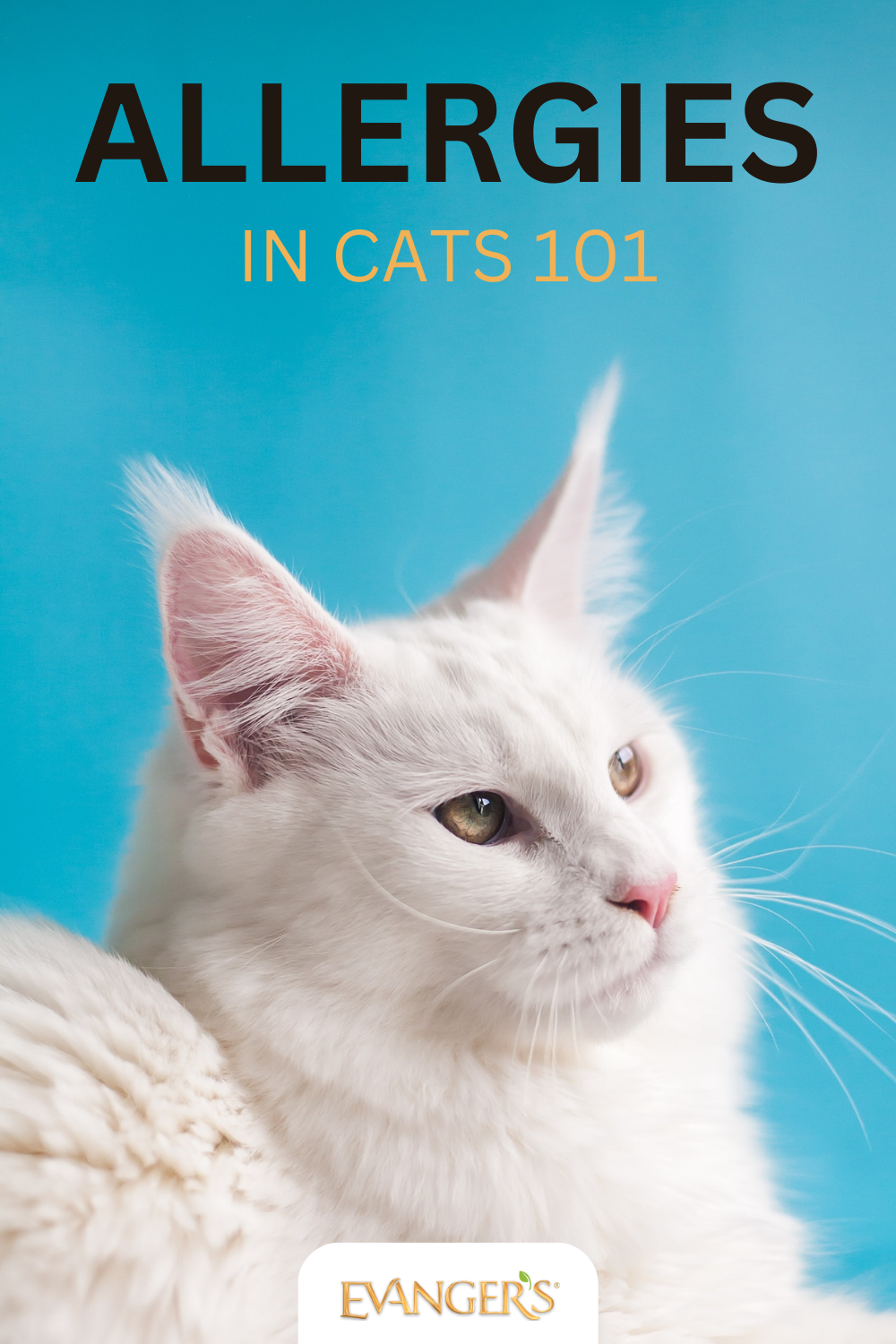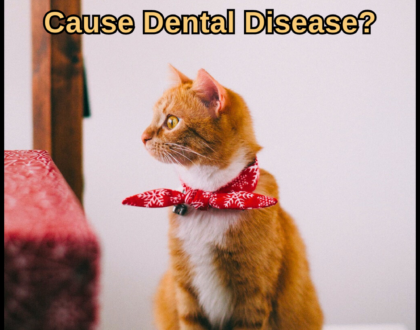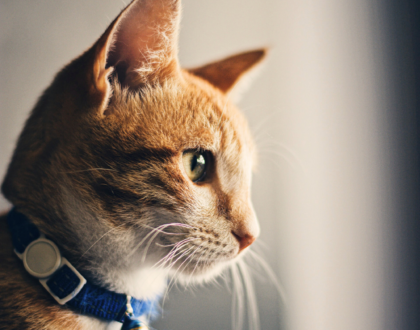Allergies in Cats 101

by Ian Germann
Just like in humans, cats can develop allergies to various allergens in their environment or diet, which can cause discomfort and affect their overall well-being. In this article, we’ll delve into the causes, symptoms and treatment options for allergies in cats, helping you better understand and manage this condition in your furry friend.
Causes of Allergies
Allergies in cats can be triggered by a wide range of allergens. Some common causes of allergies in cats include:
Environmental allergens: Various environmental allergens such as pollen, mold spores, dust mites and even certain types of grasses or trees are potential allergens for some cats. These can be inhaled or come into contact with the skin, leading to allergic reactions.
Food allergens: Cats can also develop allergies to certain ingredients in their food, such as beef, chicken, fish, or grains like wheat, corn or soy. Food allergies can cause skin irritations, gastrointestinal issues and other allergic symptoms.
Flea bites: Cats can be allergic to flea bites, and even a single flea bite can trigger an allergic reaction. The saliva from fleas can cause itching, redness and other allergic symptoms.
Insect allergens: Cats can develop allergies to insect bites or stings, such as those from mosquitoes, bees or wasps. These allergens can cause local reactions at the site of the bite or sting, as well as systemic allergic reactions.
Household chemicals: Cats can be sensitive or allergic to certain household chemicals, such as cleaning products, carpet cleaners, or even fragrances in air fresheners or candles. Exposure to these chemicals can cause respiratory irritation, skin reactions, or other allergic symptoms.
Medications: Cats can also develop allergic reactions to certain medications, including vaccines, flea preventatives, or other medications prescribed by a veterinarian. Allergic reactions to medications can range from mild to severe and may include symptoms such as swelling, itching, vomiting, or difficulty breathing.
Symptoms of Allergies
The allergy symptoms in cats often vary depending on the type of allergy and severity of the reaction. Common allergy symptoms in cats include:
Skin irritations: Cats with allergies may develop itchy, red, inflamed skin. They may scratch or bite at their skin, leading to hair loss, scabs or open sores. Skin irritations can occur in various areas of the body, including the face, neck, ears, paws and belly.
Gastrointestinal issues: Cats with food allergies or other types of allergies may experience gastrointestinal symptoms such as vomiting, diarrhea or constipation. These symptoms may be accompanied by changes in appetite or weight loss.
Respiratory symptoms: Cats with respiratory allergies, such as those triggered by environmental allergens like pollen or dust mites, may exhibit symptoms such as sneezing, coughing, runny or stuffy nose, and watery or red eyes. They may also have difficulty breathing or exhibit wheezing.
Ear infections: Cats with allergies may be prone to developing ear infections, which can cause symptoms such as ear scratching, head shaking, ear discharge, and odor.
Licking or chewing paws: Cats with allergies may excessively lick or chew their paws, which can lead to redness, swelling and sores on the paw pads.
Behavioral changes: Cats with allergies may exhibit changes in behavior, such as increased restlessness, irritability, or grooming behaviors.
Treatment Options for Allergies
Luckily for your cat, there are a wide array of treatment options available for cats suffering from allergies.
Avoidance of allergens: If the specific allergen causing the allergic reaction in the cat can be identified, avoidance of that allergen may be the most effective treatment option. For example, if the cat has environmental allergies, reducing exposure to allergens, such as keeping the indoor environment clean, using air purifiers and avoiding outdoor allergens during peak seasons, may help.
Medications: There are various medications that can be used to manage allergies in cats, depending on the type and severity of the symptoms. These usually come as corticosteroids, antihistamines and immunosuppressants.
Immunotherapy: Allergen-specific immunotherapy, also known as allergy shots or desensitization, may be recommended in some cases. This involves injecting small amounts of the allergen over time to help the cat build immunity and reduce the severity of allergic reactions. Immunotherapy is typically a long-term treatment option and requires close monitoring by a veterinarian.
Symptomatic relief: Depending on the specific symptoms of the cat, supportive measures such as medicated shampoos for skin irritations, ear cleaners for ear infections, or other symptomatic relief options may be recommended by a veterinarian.
Diet changes: If a food allergy is suspected, switching the cat to a hypoallergenic or prescription diet may be recommended to identify and avoid the allergenic ingredient.
Evanger’s Super Premium line of canned cat food comes in Duck, Rabbit & Quail and Holistic Quail with limited ingredient diets that’s perfect for cats suffering from allergies. Our Meat Lover’s Medley Kibble is also the perfect, allergen-friendly dry cat food option.
Recommended Posts

Cat Food Myths: Does Canned Food Cause Dental Disease?
June 29, 2023

Amazing Names for Black Cats
June 05, 2023

Increasing Hydration in Cats 101
May 17, 2023


